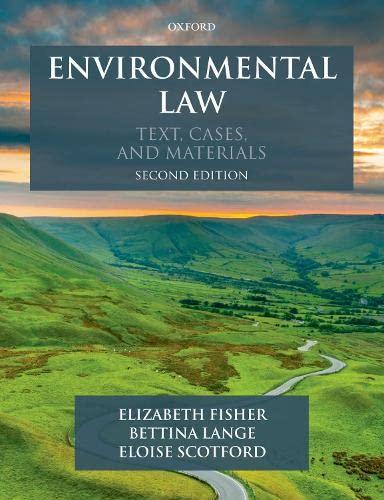Question
Question 7 (1 point) Is the bank permitted to charge interest on overdrafts? Question 7 options: Yes and no formal arrangements are required. Yes but
Question 7 (1 point)
Is the bank permitted to charge interest on overdrafts?
Question 7 options:
| Yes and no formal arrangements are required. | |
| Yes but only if there is a formal agreement in place. | |
| No |
Question 8 (1 point)
Can a trust account be combined with a personal account?
Question 8 options:
| No | |
| Yes |
Question 9 (1 point)
What is the effect of crossing a cheque
Question 9 options:
| None | |
| It is a direction of the drawer to the financial institution only to pay the cheque to another financial institution. | |
| It means the cheque refers to trust money | |
| It means the cheque has bounced |
Question 10 (1 point)
Which of the following is not a potential contract created by a credit card:
Question 10 options:
| Between the merchant acquirer and the merchant | |
| Between the trustee and the credit card holder | |
| Between merchant and the cardholder | |
| Between the issuer and the cardholder which authorises the cardholder to use the cards at authorised merchants |
Question 11 (1 point)
A creditor may refuse a conforming tender.
Question 11 options:
| True | |
| False |
Question 12 (1 point)
A travellers cheque is a type of cheque or bill of exchange
Question 12 options:
| False | |
| True |
Question 13 (1 point)
Which of the following is not a party to a bill of exchange
Question 13 options:
| Trustee | |
| Payee | |
| Drawer | |
| Drawee |
Question 14 (1 point)
What is the payment method for a contract if none is specified?
Question 14 options:
| Presumption of legal tender. | |
| The debtor may choose the payment method and this must be accepted by the creditor |
Question 15 (1 point)
A drawer of a cheque is not liable on the cheque until it has been presented for payment
Question 15 options:
| True | |
| False |
Question 16 (1 point)
Which of the following best articulates the rule in Claytons Case
Question 16 options:
| The amount first paid into a current account is treated as the amount that is first paid out | |
| A current account requires an appropriation by the banker | |
| Trust money must be held in a term deposit | |
| None of the above. |
Question 17 (1 point)
In the event of non payment, the holder of the bill of exchange
Question 17 options:
| Must join a class action against the bank | |
| May sue on the bill in their own name | |
| Must sue in tort law |
Question 18 (1 point)
Which if the following accounts is considered to be the most common?
Question 18 options:
| Savings accounts | |
| Current accounts | |
| Trust accounts | |
| Term Deposits |
Question 19 (1 point)
When is a bill of exchange required to be paid
Question 19 options:
| 30 days after the bill is issued | |
| At time specified or on demand if no time specified. | |
| On the birthday of the drawee | |
| 90 days after the bill is issued |
Question 20 (1 point)
When a cheque is drawn, the drawee bank becomes liable on the cheque
Question 20 options:
| False | |
| True |
Step by Step Solution
There are 3 Steps involved in it
Step: 1

Get Instant Access to Expert-Tailored Solutions
See step-by-step solutions with expert insights and AI powered tools for academic success
Step: 2

Step: 3

Ace Your Homework with AI
Get the answers you need in no time with our AI-driven, step-by-step assistance
Get Started


